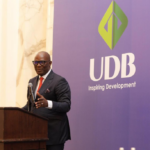Elon Musk declared on Friday “let the good times roll” after he completed his $44bn (£38.1bn) takeover of Twitter.
The purchase of the social media firm by the world’s richest man was confirmed in a filing with the US government.
The deal follows months of public – and often hostile – wrangling between Mr Musk and Twitter management.
Senior figures at Twitter have already begun to leave the company with finance chief Ned Segal announcing his exit.
Chairman Bret Taylor has also left and there are reports that Twitter’s chief executive Parag Agrawal has gone.
let the good times roll
— Elon Musk (@elonmusk) October 28, 2022
On Friday, Mr Segal tweeted that his time at the company was the “most fulfilling of my career” and reflected on the strain caused by the uncertainty of the last six months.
“You learn so much when times are challenging and unpredictable, when we are tired or feel our integrity questioned,” Mr Segal said, alluding to Mr Musk’s public criticism of the company’s leadership.
“I have great hope for Twitter,” he added.
Mr Musk has signalled he wants widespread change at Twitter. A self-styled “free speech absolutist”, he has said he sees the platform as a forum for public debate, signalling a willingness to restore controversial users such as former president Donald Trump.
Former US President Donald Trump, who was banned by Twitter last year following the Capitol riot in January 2021, claimed that the takeover meant that Twitter was now in “sane hands” while reiterating his “love” for his own Twitter-like service, Truth Social.
Musk meanwhile has assured advertisers in a public note that he did not want Twitter to become a “free-for-all hellscape”.
“The bird is free,” he wrote on the platform late on Thursday.
The likely changes have divided Twitter’s own users, some of whom are worried Mr Musk will loosen regulations governing hate speech and misinformation, and some of whom feel the previous management curtailed free speech with overly rigorous rules.
Some users on the site threatened to quit after the purchase was confirmed, while others welcomed the new ownership.
The commissioner in charge of overseeing the EU’s digital market, Thierry Breton, tweeted: “In Europe, the bird will fly by our EU rules” – suggesting regulators will take a tough stance against any relaxation of Twitter’s policies.
Meanwhile, Dmitry Medvedev, Russia’s former president and current deputy head of the Security Council, also welcomed the new ownership.
“Good luck @elonmusk in overcoming political bias and ideological dictatorship on Twitter,” tweeted Mr Medvedev.
A long road
Until recently it appeared the deal could still fall through.
After building a stake in Twitter at the start of the year, Mr Musk made his $44bn offer in April, a price tag that looked too high almost as soon as it was agreed.
He said he was buying it because he wanted “civilisation to have a common digital town square”, and pledged to clean up spam accounts and preserve the platform as a venue for free speech.
But by the summer he had changed his mind about the purchase, citing concerns that the number of fake accounts on the platform was higher than Twitter claimed.
Twitter executives took legal action to hold Mr Musk to his offer, arguing that he was balking after becoming concerned about the price.
The deal closed on Thursday, when a company controlled by Elon Musk purchased the firm for $54.20 per share, according to a filing on Friday with the US government.
Dan Ives, analyst at Wedbush Securities, said the $44bn price tag would go down “as one of the most overpaid tech acquisitions in the history of M&A (mergers and acquisitions) deals on the Street”.
“As we have discussed, the easy part for Musk was buying Twitter, the difficult part and Everest-like uphill battle looking ahead will be fixing this troubled asset,” he wrote.
Despite playing a large role in public debate, Twitter remains a relatively small social media platform, claiming about 240 million accounts that are active daily, compared with nearly 200 billion on Facebook.
It has struggled with the wider market decline in digital advertising.
It is not yet clear whether the clear-out of senior management is the forerunner to company-wide job cuts. Earlier reports suggested 75% of staff at the social media company were set to lose their jobs but those reports were “inaccurate”, according to Ross Gerber, a shareholder in both Twitter and Mr Musk’s other company Tesla.
Departing executives are in line to receive hefty payouts under terms negotiated earlier this year. Mr Agrawal could receive a package worth potentially $60m, while Mr Segal could receive more than $46m, according to a May filing with the US government.





